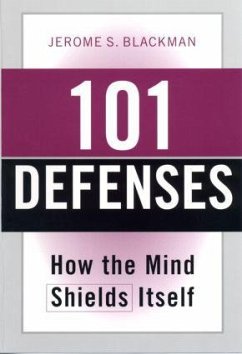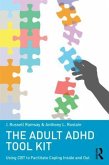Defenses are mental operations that restore or maintain psychic equilibrium when people feel that they cannot manage emotions that stem from conflict; they remove components of unpleasant emotions from conscious awareness. For example, using sex, food, or hostility to relieve tension - that's a defense - catalogued here as entry number 68: Impulsivity. Screaming at someone can be a defense. Playing golf can be a defense. So can saving money. Or at least all of these activities may involve defenses. In this book, Blackman catalogs 101 defenses - the most ever compiled - with descriptions practical for use in everyday assessment and treatment of psychopathology. He explains how to detect and interpret a defense and offers supportive therapy techniques. The many practical tips interspersed throughout this text make it an excellent reference tool for students and experienced clinicians, while the user-friendly features allow all readers to experience how psychological defenses operate in everyday life.
"The book is fun. Friendly, capacious, tongue-in-cheek, a bit condescending, it's the sort of volume one might keep next to the bed to dip into now and again, not only amusing to pick up and easy to put down, like mail-order catalogues, but also richly diverse, like the lists and catalogues of Whitman, the Ten Commandments or the Seven Deadly Sins. I would recommend it to students-residents in psychiatry, psychology, graduate students, perhaps even beginning psychoanalytic trainees-and, in the same spirit as Blackman, to anyone who likes a lively read and is drawn to the special relaxations and intermittent rewards of a rich catalogue." ---Ellen Pinsky, Psy.D., Cambridge, MA









